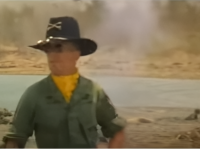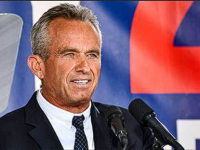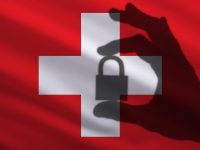Citizenfour review – Edward Snowden documentary is utterly engrossing

OSCAR. Last year, UK cinemagoers were treated to two competing accounts of the story of Julian Assange: Bill Condon’s oddly inert drama The Fifth Estate, and Alex Gibney’s more pointedly dramatic documentary We Steal Secrets: The Story of Wikileaks.
Although very different in form, content and, indeed, success (Gibney’s film was Bafta-nominated, Condon’s was hailed as one of the year’s biggest flops), both movies wrestled with the conundrum of separating the cult of Assange’s divisive personality from the significance of the information that he helped to publish – for better or worse.
There’s a similar tension at the heart of Citizenfour, which intimately documents whistleblower Edward Snowden’s efforts to lift the lid on the intrusive post-9/11 US eavesdropping industry. Yet unlike Assange (who appears briefly), Snowden shows no signs of wanting to be the centre of any story; on the contrary, he seems positively camera-shy as Oscar-nominee Laura Poitras captures him in a Hong Kong hotel room in 2013, over eight tense days during which his revelations are first made public. Accompanied by the contrastingly gregarious Glenn Greenwald and the Guardian’s meticulous Ewen MacAskill, Snowden attempts to weigh up the importance of standing up to be counted against the possibility of the story becoming about him, rather than his information. With winning candour, he admits that he has no experience of the media and is eager to hand over decisions about what should be revealed, and when, to people whom he trusts to know better – another stark contrast with Assange’s more egomaniacal approach.
Key to Snowden’s trust is Poitras, who earned herself a place on the Department of Homeland Security’s “watch list” with 2006’s My Country, My Country (about life under US occupation in Iraq) and 2010’s The Oath (filmed in Yemen and Guantánamo) and here builds upon her 2012 short The Program, wherein NSAwhistleblower William Binney revealed how technology designed to gather foreign intelligence was used “to spy on US citizens without warrants”.
An NSA contractor employed by Booz Allen Hamilton, Snowden became similarly alarmed that he was “designing systems to amplify state power”. Encrypted emails to Poitras led to clandestine encounters of the kind that normally only happen in spy movies, replete with coded exchanges (“Do you know the restaurant’s opening hours?”) in exotic foreign locales. After their secretive sojourn in Hong Kong, during which the bulk of Citizenfour was filmed, the various parties dispersed, with the now outlawed Snowden seeking refuge in Russia, Greenwald returning to Rio and Poitras heading to Berlin to complete her film in secrecy.
The film’s final stanza, which was carefully “redacted” until the New York premiere last Friday, reunites the central characters in Russia, where they share a broken conversation in which key words are scribbled on notepads rather than spoken aloud (for fear of listening devices) and then shredded before the camera’s prying eyes. John le Carré couldn’t have made this stuff up.
As with so much of her previous work, Poitras’s documentary dramatically straddles the divide between art and journalism, cinema and reportage. The trailer for Citizenfour, which warns that “every border you cross, every purchase you make, every call you dial… is in the hands of a system whose reach is unlimited but whose safeguards are not”, plays it as the most chilling thriller of the year, and that’s no an idle boast; there is tension here to rival any of executive producer Steven Soderbergh’s taut dramas.
Outside of the interviews, Poitras presents us with lines of dot-dash lights that could be digital code, but gradually come into focus as the overhead illuminations of a long, dark tunnel – the rabbit hole down which we must travel. An ominous, rumbling score adds menace, suspended chords and electronic creaks suggesting a descent into some Stygian world. Even in the brightly lit hotel rooms, the sound continues to alarm, the shrieking bell of a suspiciously timed fire drill setting our subjects’ nerves on edge – and ours.
Revelations that every phone and mobile device can be remotely used as a bug (at one point, Snowden hides beneath a cowl to protect his keystrokes) crank up the tension further still; when a mobile phone went off in the early screening I attended, the audience’s annoyance was tempered by all-too-nervous laughter. I’m sure I wasn’t the only one who went home and took the battery out of their mobile.
At times I was reminded of Jafar Panahi’s This Is Not a Film, which found the Iranian auteur covertly making movies while under house arrest in Tehran. Elsewhere, there are echoes of The Internet’s Own Boy and the youthful altruism of Aaron Swartz; one sequence in which Snowden attempts to disguise himself via the application of hair gel would not look out of place in a John Hughes movie, his now familiar tousled cut, specs and preppy smile suggesting a wide-eyed naivety at odds with his apparent understanding (and acceptance) of the magnitude of his actions. It’s a moment of light relief amid a movie of brooding darkness – bravely made and utterly engrossing.
THE INTERCEPT’S LAURA POITRAS WINS ACADEMY AWARD FOR ‘CITIZENFOUR
Laura Poitras, a founding editor of The Intercept, won an Academy Award tonight for her documentary “Citizenfour,” an inside look at Edward Snowden, the National Security Agency whistleblower. https://firstlook.org/theintercept/
“The disclosures that Edward Snowden revealed don’t only expose a threat to our privacy but to our democracy itself,” Poitras said in her acceptance speech. “Thank you to Edward Snowden for his courage and for the many other whistleblowers.” Snowden, in a statement released after the award was announced, said, “My hope is that this award will encourage more people to see the film and be inspired by its message that ordinary citizens, working together, can change the world.”
The film, which has been hailed as a real-life thriller, chronicles Snowden’s effort to securely contact Poitras and Glenn Greenwald in 2013 and meet them in Hong Kong, where Poitras filmed Snowden discussing the thousands of classified NSA documents he was leaking to them, and his motives for doing so. The film takes its title from the pseudonym Snowden used when he contacted Poitras in encrypted emails that were revealed in her documentary.
“If you publish the source material,” one of his first emails said, “I will likely be immediately implicated. This must not deter you from releasing the information I will provide. Thank you, and be careful.”
“Citizenfour” received widespread acclaim when it was released last year.The New York Times said it was “a primal political fable for the digital age,” while Indiewire described it as “the stuff of Orwellian nightmares … it plays like the greatest paranoid thriller since ‘All the President’s Men.’” Prior to the Academy Awards, it won a number of prizes for best documentary from the New York Film Critics Circle, the Directors Guild of America and other organizations.
The documentary is centered around the extraordinary footage Poitras shot of Snowden in his hotel room with Greenwald and Guardian reporter Ewen MacAskill, who also travelled to Hong Kong. The film includes scenes of Snowden preparing to leave the hotel to go into hiding after the first NSA stories were published, along with a video interview in which Snowden revealed his identity. Snowden eventually slipped out of Hong Kong and, after becoming stranded in Moscow’s Sheremetyevo airport, was offered political asylum in Russia, where he currently resides.
The documents leaked by Snowden have revealed the NSA’s dragnet surveillance of American phone records, as well as the agency’s extensive efforts to infiltrate and compromise global telecommunications networks. The NSA’s activities have been condemned by civil liberties advocates in the United States as well as by foreign governments that have been spied on by the agency. The stories written about the documents have earned Pulitzer Prizes for The Guardian and The Washington Post (which also received documents from Snowden). Those publications, as well as The Intercept and other news organizations, including Der Spiegel in Germany, continue to publish major stories about the NSA’s surveillance activities, such as an article just a few days ago that revealed the NSA and its British counterpart, the GCHQ, had stolen billions of cellphone encryption keys from a Dutch firm.
Poitras, who in 2012 was awarded a MacArthur Foundation “genius” grant, had earned an Academy Award nomination for a previous film, “My Country, My Country,” about the Iraq war. Released in 2006, it was the first in a trilogy of films about America after 9/11; the second, released in 2010, was “The Oath,” filmed in Yemen and Guantánamo Bay. “Citizenfour” is the final film in the trilogy, which Poitras has described as an examination of American power in the war on terror.
Poitras herself came under the type of government surveillance that the Snowden documents outline. After her Iraq film was released, she was stopped dozens of times at U.S. and foreign airports and questioned by border agents; her name had apparently been placed on one of the U.S. government’s terrorism watchlists. This put her into an unusual position — a documentarian who was under surveillance while working on a documentary about surveillance.
It was a short film by Poitras about the NSA, focusing on whistleblower William Binney, that brought her to the attention of Snowden. He saw the film, which was called “The Program” and was published as a New York Times op-doc in 2012, and realized Poitras was reporting on the NSA and that she probably had enough knowledge of encryption practices to communicate with him securely. He later explained that he trusted her and Greenwald, who is another founding editor of The Intercept, more than any major media outlets in the post-9/11 era.
“Laura and Glenn are among the few who reported fearlessly on controversial topics throughout this period, even in the face of withering personal criticism, and resulted in Laura specifically becoming targeted by the very programs involved in the recent disclosures,” Snowden has said. “She had demonstrated the courage, personal experience and skill needed to handle what is probably the most dangerous assignment any journalist can be given — reporting on the secret misdeeds of the most powerful government in the world.”
Poitras, who studied film at the San Francisco Art Institute and political theory at The New School before turning to journalism, will have a solo exhibition at the Whitney Museum in 2016.
Peter Maass










